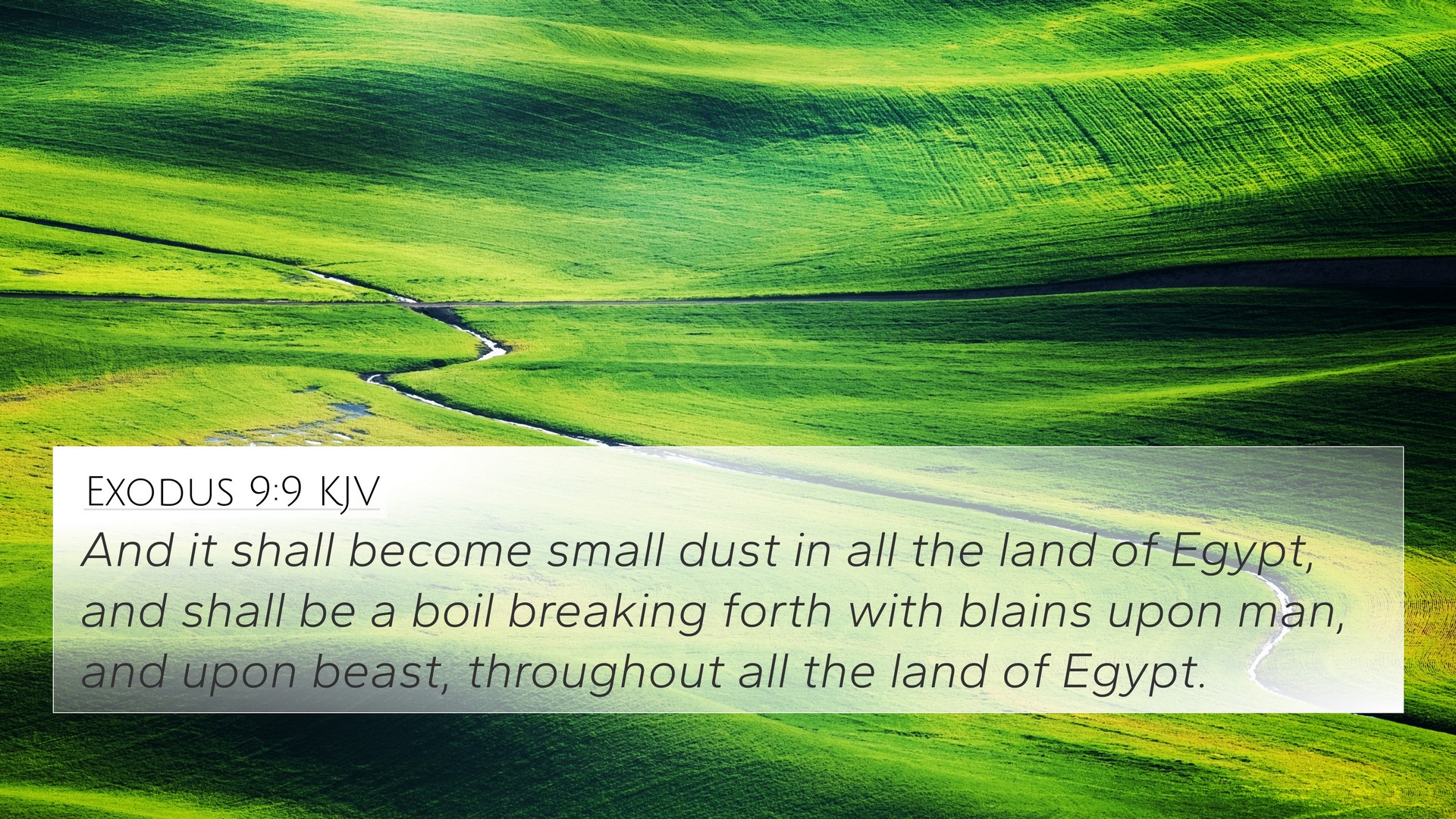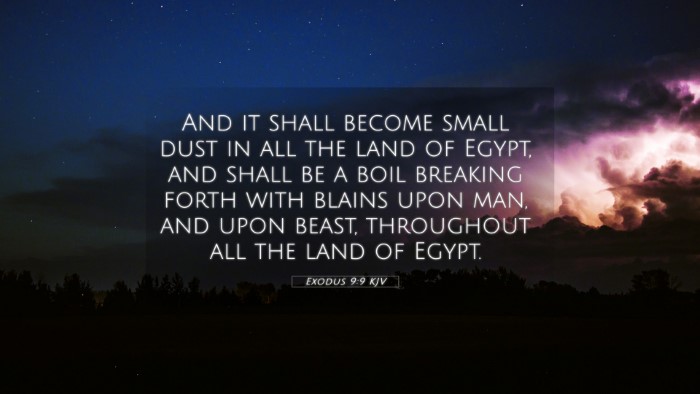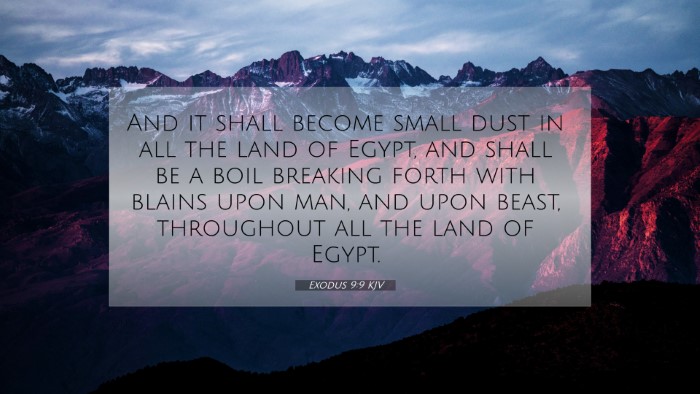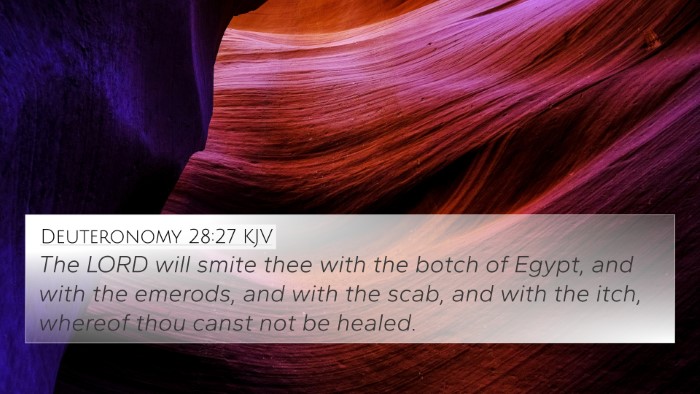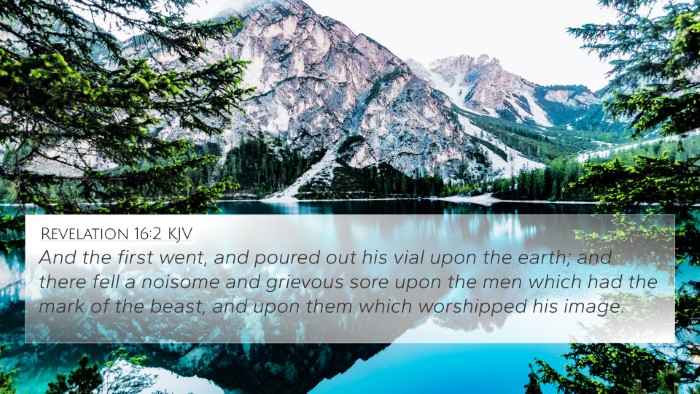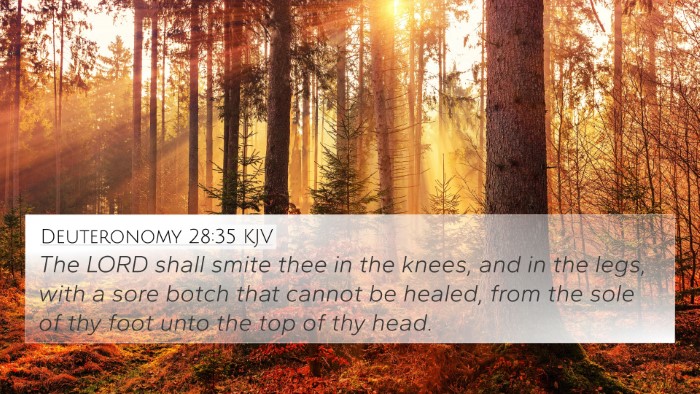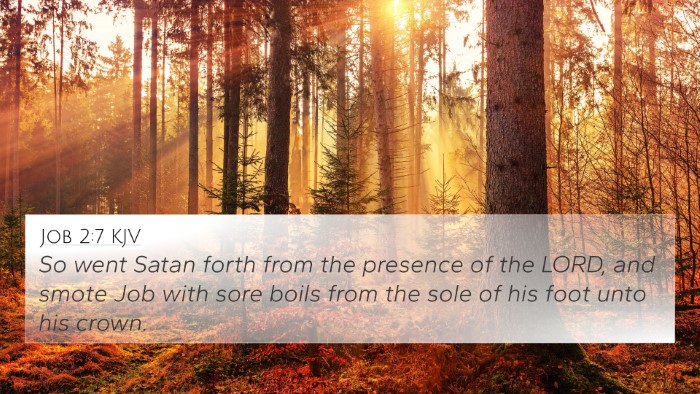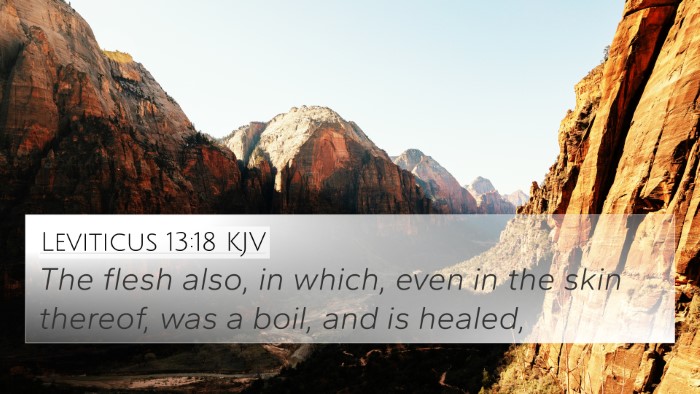Understanding Exodus 9:9
Exodus 9:9 states: "And it shall become fine dust in all the land of Egypt, and it shall cause boils that break out in sores on man and beast throughout all the land of Egypt." This verse is part of the narrative detailing the plagues that God inflicted upon Egypt to convince Pharaoh to release the Israelites from slavery.
Meaning and Interpretation
The significance of Exodus 9:9 cannot be overlooked, as it highlights the severity of God's judgment against Egypt, showcasing both His power and the consequences of disobedience. This verse can be understood in several thematic contexts as follows:
- Divine Judgment: The plagues serve as a direct response to Pharaoh's hardened heart and refusal to let the Israelites go. This reflects a larger biblical theme of God's justice.
- Affliction as a Warning: The boils signify a physical affliction that serves as a warning, imploring the people to recognize God's sovereignty.
- Contrast with God’s People: While Egypt suffers, the Israelites are protected, illustrating God's covenant relationship and the concept of divine favor.
Commentary Insights
Commentators provide rich insights into Exodus 9:9:
- Matthew Henry: Stresses that the various plagues targeted specific Egyptian deities, and the boils represent divine retribution against those who oppose the God of Israel. Henry indicates that God's judgments are often educational, meant to lead a rebellious heart to repentance.
- Albert Barnes: Focuses on the method of the plague: the fine dust of the earth becomes a source of disease, signifying that even the earth, a creation of God, is a tool for His will. His commentary emphasizes that the plagues are manifestations of God's control over all aspects of life.
- Adam Clarke: Highlights the implications of both human and animal suffering due to Pharaoh's oppressive actions against God's people. Clarke suggests that the visible suffering of beasts serves to amplify the despair among humanity, indicating communal guilt.
Bible Cross-References
This verse is interconnected with several biblical themes and narratives, providing insight into the nature of God and His dealings with humanity. Here are some relevant cross-references:
- Exodus 5:1-2: Pharaoh's initial rejection of Moses' plea to let the Israelites go.
- Exodus 7:14-15: The beginning of the plagues, highlighting Pharaoh's hardened heart.
- Exodus 8:18-19: The magicians of Egypt acknowledging the power of God through God's miracles.
- Job 2:7: The affliction of Job as a similar instance of physical suffering as a test, reflecting God's sovereignty.
- Revelation 16:2: The final plague is paralleled with the boils, illustrating ongoing themes of judgment.
- Psalm 105:36: A reflection on the plagues and God's mighty acts in Egypt.
- Hebrews 11:27-29: A reference to faith and the protection of God's people in Egypt.
Thematic Connections
The connections between these verses highlight multiple layers of understanding in Exodus 9:9:
- God’s Sovereignty: The link between suffering among the Egyptians and God's authority over health and welfare.
- Historical Context: The understanding of plagues as God’s commentary on the moral state of Egypt.
- Covenantal Relationships: The protective distinction between God's chosen people and their oppressors.
Tools for Bible Cross-Referencing
For those interested in exploring Bible verse cross-references, we recommend the following tools:
- Bible Concordance: A valuable resource that lists words found in the Bible, with corresponding verses.
- Bible Cross-Reference Guide: Helps identify related verses across both testaments, revealing thematic links.
- Bible Chain References: A methodical approach to tracing references through systematic linking.
- Cross-Reference Bible Study: Involves studying connections purposefully, enriching understanding.
- Comprehensive Bible Cross-Reference Materials: Utilize print or digital resources that facilitate thematic exploration.
Conclusion
Exodus 9:9 stands as a profound reminder of God's power and the seriousness of divine warnings against sin. By cross-referencing related verses, one can gain deeper insights into the nature of God's justice and mercy. Understanding these connections helps us not only to interpret Scripture but also to apply its lessons in our lives.
